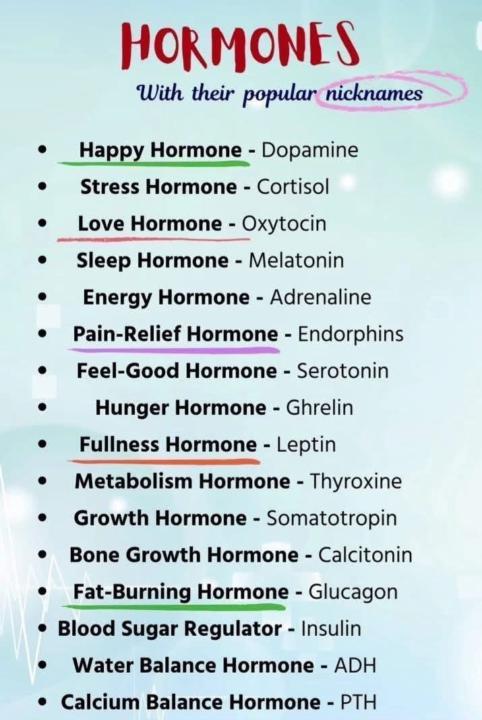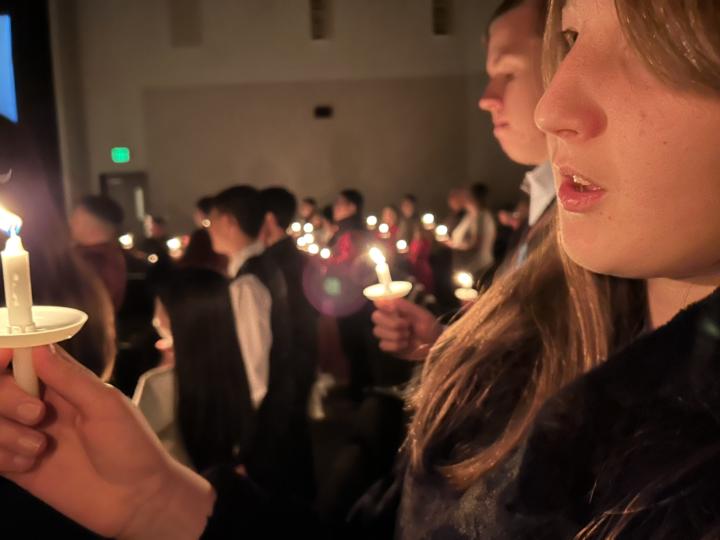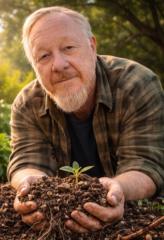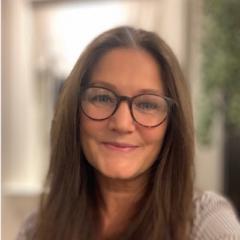Herbal Tinctures
🌿✨ Easy Herbal Tinctures You Can Make at Home! ✨🌿 Amy shows how simple it is to make your own herbal tinctures, including: 🍃 Mullein – supports lungs, respiratory health, and soothing coughs 🌼 Arnica – great for pain, aches, arthritis, bruising, and sore muscles (topical use) 🌙 Valerian – supports sleep, relaxation, and calming anxiety These are classic herbs with powerful benefits—and making them yourself is easier than you think! Perfect for building a home herbal toolkit naturally. 🌱💚 #HerbalRemedies #DIYTinctures #HerbalHealing #NaturalWellness #HolisticHealth #PlantMedicine #HerbsForHealth #HomeApothecary

Hormones: it’s SO much more than Estrogen & Testosterone 🧠✨
When most people think hormones, they think estrogen, progesterone, and testosterone — but those are just three instruments in a full orchestra. 🎻Your body runs on dozens of hormones that affect mood, sleep, weight, energy, pain, digestion, and even how safe or stressed you feel. Here’s a quick tour of the hormone team 👇 🧠 Dopamine – motivation & reward (“happy drive”) 😌 Serotonin – mood stability & emotional wellbeing ❤️ Oxytocin – love, bonding & connection 😴 Melatonin – sleep & circadian rhythm⚡ Adrenaline (epinephrine) – energy & alertness 🔥 Cortisol – stress response (helpful short-term, harmful when chronic) 💊 Endorphins – natural pain relief & pleasure 🍽️ Ghrelin – hunger signal ✅ Leptin – fullness & satiety ⚖️ Insulin – blood sugar regulation 🔥 Glucagon – fat burning & blood sugar release 🦋 Thyroxine (T4) – metabolism & energy production 📈 Somatotropin (Growth Hormone) – repair, muscle & fat metabolism🦴 Calcitonin – bone building🦷 Parathyroid Hormone (PTH) – calcium balance Why the GUT matters for hormones 🦠 ➡️⚖️Your gut:• Activates and deactivates hormones• Helps recycle estrogen properly• Produces neurotransmitters like serotonin• Reduces inflammation that disrupts hormonal signals A sluggish or inflamed gut = hormonal chaos 😵💫 The big picture 💡Getting ALL these hormones back on track is what truly improves: ✔️ Energy✔️ Mood✔️ Sleep✔️ Weight balance✔️ Brain fog✔️ Resilience to stress Hormone health isn’t about one fix — it’s about restoring communication, balance, and rhythm in the body. 🌿When the orchestra plays together, the music is beautiful. 🎶
6
0

2026
🎆✨ Happy 2026! ✨🎆 Usually every year, the Lord gives me a word for the year and a guiding verse. This year…the first of January came, and nothing. No word. No phrase. 🤔 But last night, as I was reading my Bible, I came across a Psalm where every single verse repeats: “For his steadfast love endures forever.” 💛 Then the Lord confirmed it again when I picked up a book, and the chapter heading was another verse about steadfast love! 🙌 This phrase is perfect for our spiritual walk, family, health, and business. Without being steadfast (firm, unwavering, committed) and living in love (patient, kind, enduring, sacrificial), we truly have nothing! 💖 I’ll be posting encouragements, verses, and reflections throughout 2026 with this word — so stay tuned! 🌿📖 #Happy2026 #SteadfastLove #Faith #Encouragement #TrustGod #2026Vision

✨ Stepping Into 2026 With Intention, Gratitude & Community ✨
This season feels like an invitation to pause, reflect, and realign. 🕊️ As a family, we’re doing just that. I’m attaching a 2025 Reflection & 2026 Vision sheet that my kids are filling out, and I wanted to share it with you and your families as well. 📝✨ It’s a simple, meaningful way to look back with gratitude and step forward with purpose. Let me know if there is something you want to see for 2026 🔮 or if you have a challenge that we can discuss as a group. 🤝 If your goals for 2026 include: - 🌸 Reducing stress, anxiety, or depression - ⚖️ Balancing hormones and Improving digestion - 🏃 Supporting weight loss and reducing inflammation - 💪 Addressing chronic health issues - 🔥 Learn homeopathy and other natural medicine and reduce need for pharmaceuticals - 🌿Eat healthier …I would love to walk alongside you. 🌟 🌿 Consult Special (Limited Time) I’m offering $10 off my consults, bringing the cost to $67. 💌✔ Includes a free 15-minute Zoom discovery call so we can connect and see if it’s a good fit 📩 Send me a PM if you’re interested 💧 Slenderiiz Drops (US only) I’m also running a special on the drops I use and recommend: 💵 $145 (normally $160) — includes shipping & taxes Comes with two bottles:• 💊 One homeopathic formula• 🌿 One vitamin & herbal adaptogenic blend These support: - 😌 Stress, anxiety & emotional balance - ⚖️ Hormone balance - 🏋️ Weight loss - 🔥 Reduced inflammation - 🌎 Whole-body healing Bonus: 🎁 For those doing the drops, there’s a Body Balance Challenge 🏆 with three different categories for men and women starting 5 Jan. Weekly meetings and support help you meet your goals, with prizes for each category 🎉 and a grand prize winner receiving a ticket for two to Maui 🌴✈️ My prayer 🙏 is that 2026 is a year where we help heal ourselves and our families — through homeopathy, nutrition, intentional health practices, and with God’s guidance every step of the way. 🌟💚 Thank you for being here. This journey is better together. 🤗💚
5
0


1-30 of 96

skool.com/amys-health-nest
Join us to discover holistic healing through homeopathy and nutrition.
Powered by






